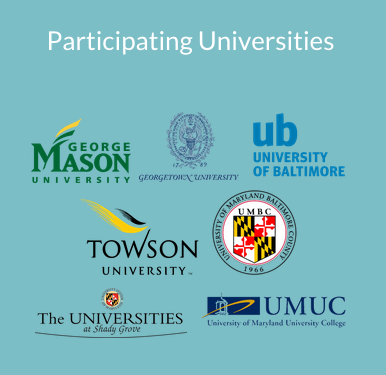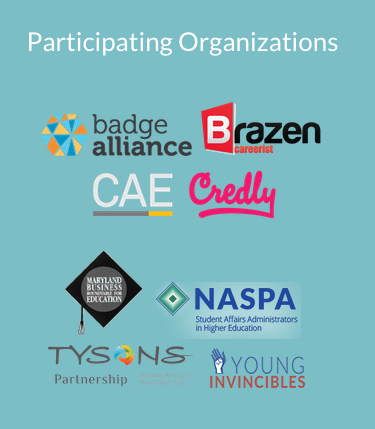Washington, DC (March 2, 2015) - The Education Design Lab announced the kick-off today of a unique design challenge and partnership to address the “21st century skills” gap. This 9-month peer learning and cohort pilot will be the first challenge nationally to articulate and test a map of credentials responding to the “21st century skills” gap for entry-level professional employees.

The process brings together seven major private and public universities in one of the nation’s hottest job markets, the greater Washington DC area, along with partner employers, and groups representing employers such as Maryland Business Roundtable for Education and Tysons Partnership. Universities include George Mason University, Georgetown University as part of its Designing the Futures initiative, and five University System of Maryland (USM) institutions – Towson University, University of Maryland Baltimore County, University of Baltimore, University of Maryland University College, and the USM’s Universities at Shady Grove. George Mason University, which completed initial design work last year on the challenge, tested a critical thinking badge to begin to understand the needs of employers and students to make a badging process viable.

Badging, a system used to identify and verify skills and achievements, is gaining momentum as a way to certify and display skills that are not taught through traditional courses, much like a black belt in karate or a Six Sigma Certification for corporate management. The use of badging in education is in its infancy, as educators consider using it to map a second axis of learning alongside the academic transcript.
"What’s clear from our early design challenge is that this is a really big idea, but we need more stakeholders at the table to design a network of badges that is meaningful in the workforce,” notes George Mason University President Dr. Ángel Cabrera. “We need to agree on credible assessments for these skills, we have to help students understand their strengths and growth areas and we need to have employers at the table to help our faculty and staff understand where academia can be helpful."
Employers continue to assert that students entering the workforce after high school or college are lacking what are often called “21st century skills,” which include “the four C’s,” communication, critical thinking, creativity and collaboration. According to a new study by Hart Research Associates: “This is particularly the case for applying knowledge and skills in real-world settings, critical thinking skills, and written and oral communication skills—areas in which fewer than three in 10 employers think that recent college graduates are well prepared.” Michael Caplin, President of Tysons Partnership, a consortium of global and local businesses in Northern Virginia, added, "As an elite and vital employment center that is home to some of the world's most recognizable companies, Tysons wants to be at the forefront testing tools to identify and develop diverse talent that match the specific needs of the global community we represent."
“This is no time for ‘business as usual’ for higher education,” said Dr. William “Brit” Kirwan, chancellor of the University System of Maryland. “We need to cement partnerships with potential employers and collaborate with industry thought leaders in order to think differently about how we identify and further develop the skills our students need upon graduation.”
“A lot of people are talking about the power of badging for this purpose, said Kathleen deLaski, founder of the Education Design Lab. “We are trying to get this to the rapid prototyping and pilot stage. We know we’ll make mistakes, but designing a system together and having each school test one badge will be a great way for us to all learn.”
Other early partners include the Badge Alliance, a network of organizations collaborating on an open badging ecosystem, Credly, an open badge platform that is already hosting digital badges and credentials for thousands of colleges, universities, employers, industry associations and Brazen Careerist whose real time messaging platform is used for recruiting, career coaching and professional networking.

For more information on the Education Design Lab and the badging challenge, visit the Education Design Lab website.